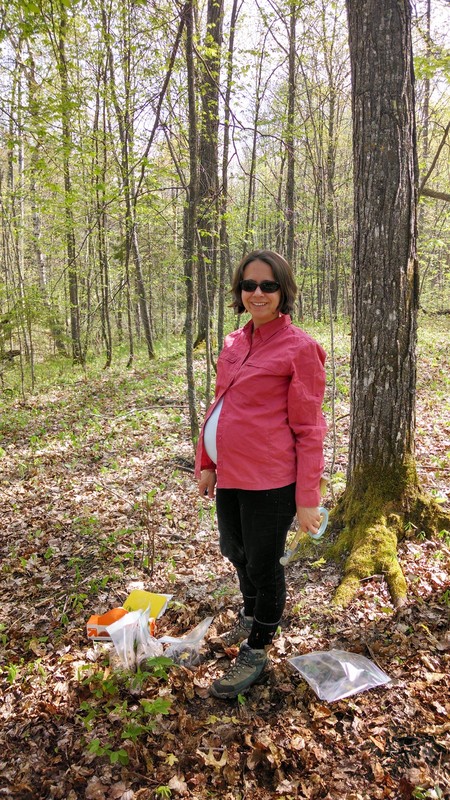Ecohydrology is the feedback between the hydrosphere and the ecosphere. I focus on how hydrology alters vegetative landscapes and then, in turn, how the vegetation alters the water cycle.
What are your undergraduate and graduate degrees in?
I have a BS and MS in Forestry from Virginia Tech. I received my doctorate in an interdisciplinary program (Natural Resources Science and Management) from the University of Minnesota, but had an emphasis on Watershed Hydrology and Management.
How did you arrive at working in/thinking about ecohydrology?
As a forestry undergraduate student, most of my technical training was very vegetation centric with a strong background in soil science. I first started thinking about hydrology and the connection between forests and water during my graduate studies. For my graduate and post-graduate studies, I was fortunate to interact with great forest hydrologists from some of our seminal long-term paired watershed studies (see https://www.fs.fed.us/research/efr/efr-sites/index.shtml). Scientists from the Forest Service were among the first Ecohydrologists and I feel inspired by their ability to marry basic fundamental science with more applied research questions. Thus, most of my research still focuses on the connectivity between forests and water storage and release in catchments.
What do you see as an important emerging area of ecohydrology?
One emerging area that I think the field is grappling with is the issue of scaling across landscapes. If you imagine a droplet of water falling on a hillslope, there are myriad pathways it can take, so many different molecules and organisms that it can interact with. Now imagine scaling that droplet up to an event or across time or across a large spatial scale. It’s a daunting task! Yet scaling the inherent heterogeneity in natural and disturbed systems creates wide error bars, and is essential for adaptive management and risk analysis. I look forward to seeing how we as a field start to answer and address some of the challenges we’re facing.
Do you have a favorite ecohydrology paper? Describe/explain.
My favorite paper of all time is “Streamside trees that do not use stream water” by Dawson and Ehleringer (Nature 1991). I first read this paper while I was a PhD student. I was feeling uninspired and was contemplating whether or not I was headed down my “correct” path when I was introduced to this paper in an ecosystems ecology course. In the paper, Dawson and Ehleringer use stable isotopes to determine whether or not streamside trees are actually pulling water from the stream itself. I was absolutely astonished that you could use the chemical signature of water to trace its movement into a plant. In fact, I’m still amazed by this! Even years after first reading it, this paper gets me excited about science in general and ecohydrology in particular (just ask my students!).
What do you do for fun (apart from ecohydrology)?
I have two young daughters, so most of my time is spent chasing after them with my husband. I also run marathons and ultramarathons and spend a lot of time exploring the many trails around Duluth and thinking about science. I’m also an avid reader and enjoy reading both fiction and nonfiction.

 RSS Feed
RSS Feed